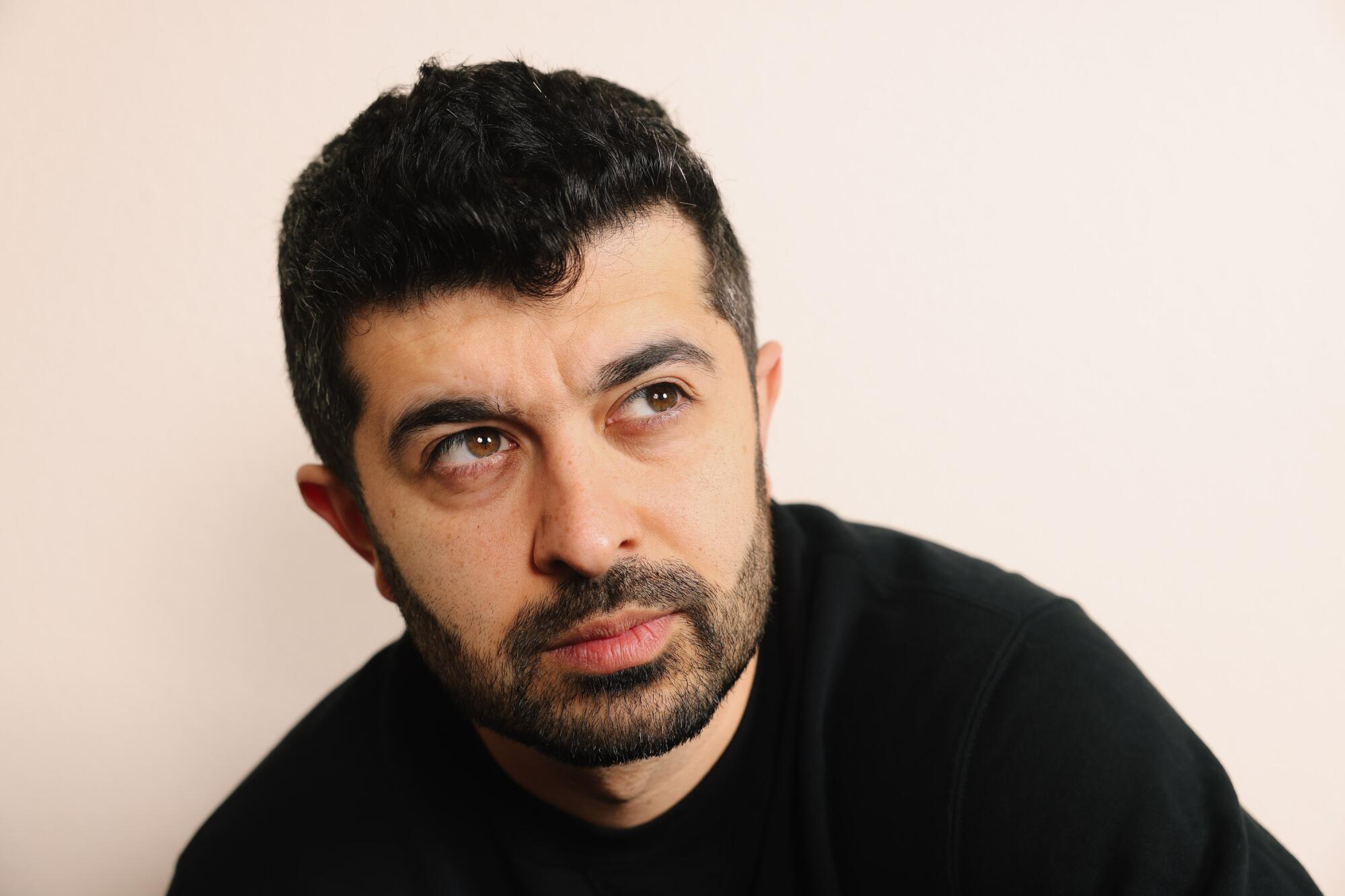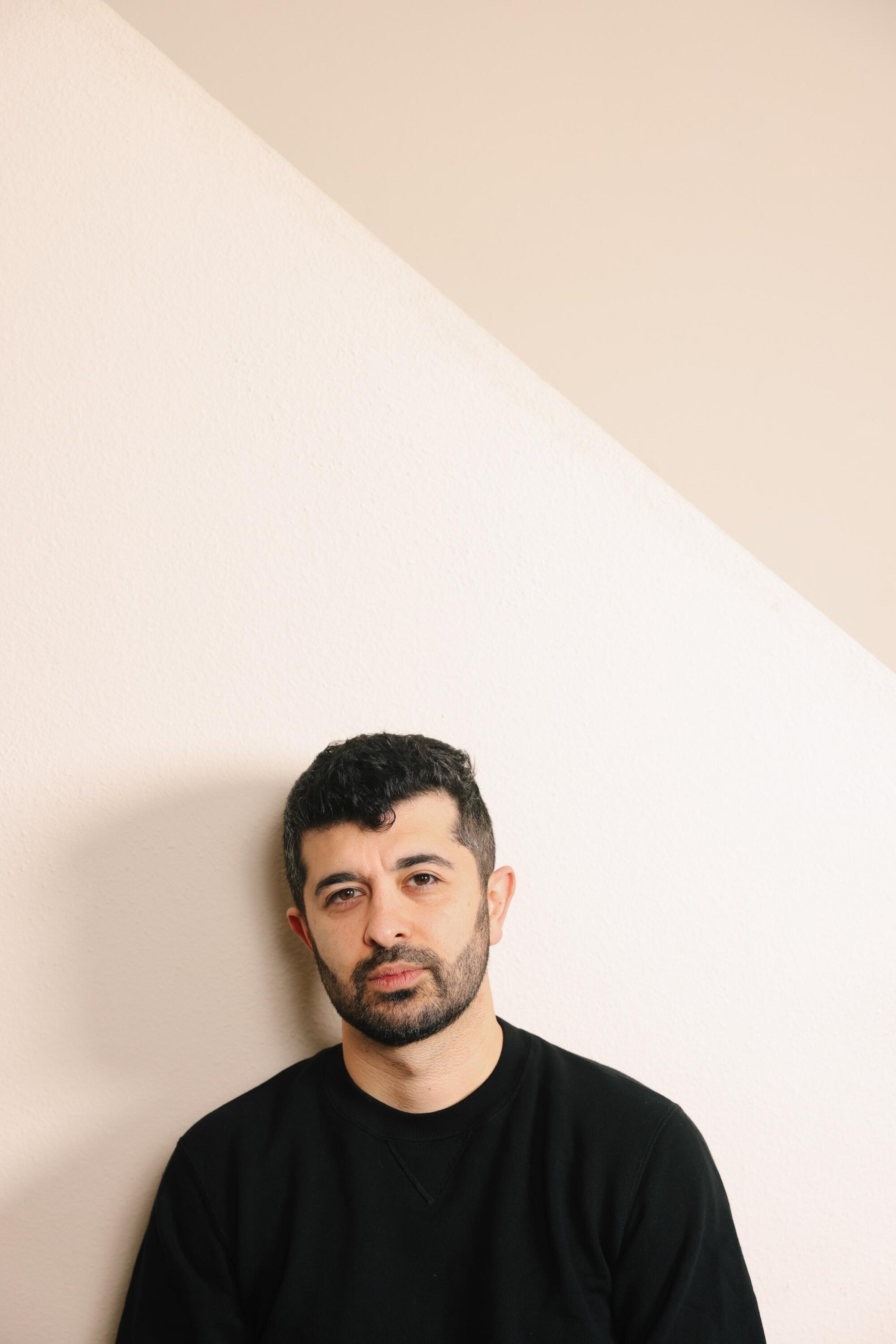
For Behzad Dabu, success as an actor came when he was able to give up his day job.
“When I was able to support myself fully and solely on acting, it was massive,” he said. “It was life-changing.”

Dabu comes from a family of performers. His grandfather founded a Parsi drama troupe in India that’s been running for over 60 years. His parents, who immigrated to the U.S., are staples in the community theater scene in Syracuse, N.Y.
He said he has “a bit of survivor’s remorse” when he’s around other actors with immigrant parents who are disappointed their children didn’t become doctors, lawyers or engineers.
His mother has played everyone from Puck in “A Midsummer Night‘s Dream” to Blanche in “A Streetcar Named Desire,” and his architect dad has been designing sets since he built an entire onstage village for Behzad’s middle school performance of “Fiddler on the Roof.”
“We had sets that legit rotated on a turntable and folded up within each other, because my dad architecturally designed those cardboard boxes to move,” he said.

Hollywood careers
What defines success?
This profile is part of a series about what success looks like to working actors in Hollywood.
His family had challenges, including financial ones, Dabu said. But when he decided to study acting in college and get his master’s in theater in London, he had full parental support.
“It is a gift because I could’ve absolutely seen myself giving up,” he said. “This industry has so much rejection.”
He started his career doing professional theater in Chicago. He acted in multiple premieres, including “The History Boys,” “Samsara” and “Disgraced,” which won the Pulitzer Prize for Drama in 2013. The last stop of that national tour was in Los Angeles, where he got the attention of the “How to Get Away With Murder” producers — and the role of Simon Drake. Now he’s on “The Chi,” where he plays Amir and is also the Showtime drama’s head acting coach.
But that’s just the fancy stuff, he said.

“Throughout all of that — underneath it, around it, supporting it — were voiceover gigs; doing three episodes of a show called “The Lion Guard” [a spin-off of “The Lion King”] on Disney; table reads where you go read a script for someone and make a couple hundred bucks; workshops of plays at the Geffen or UCLA.”
None of those gigs, by themselves, provide a livable wage, he said. But it all adds up.
Dabu has great respect for actors like his mom who can act purely for the art and focus on the craft. But he’s become equally passionate about demystifying the business side of acting in Hollywood.
“There’s an actor joke, where at the end of the year, we get 20 1099s,” he said, referring to the tax form for independent contractors. “We get so many from random companies for a one-day gig here and a one-day gig there.”
For his role as Simon Drake on “How to Get Away with Murder,” whom he played for two seasons, he never had a multiple-episode contract.
It started with a two-line role. At first, the character didn’t even have a name. The script called him “Pompous Face.”
“Every episode I did, I had to kind of earn my next episode,” he said.
He shot almost 30 episodes and appeared in 20. It’s common for hourlong dramas to shoot 80 pages for 55 pages of material, which means it’s also common for your scenes to get cut, he said.
But even if no one ever sees it, you still get paid.
The job of a Hollywood actor is equal parts creative and business. Professionals demystify what the job is and how to strategize for a long career.
Since Dabu was 8 years old, his goal was to be able to support himself by doing what he loved: performing. Eight years ago, he was able to quit his job as a college admissions administrator.
“When you can pay for your insurance, your travel, your rent, your food and whatever other expenses you have — even a vacation or two — with just acting income, that’s a huge win,” he said.
His next big goal is to get to a point where he has more flexibility in his career. Actors at his level, he explains, still have to take whatever they get offered. If they get offered a gig in Toronto, they have to go to Toronto.
“It would be great to have a few scripts sent to me a week that I get to choose from,” he said. “To be able to say: ‘Actually, I want to do work that’s only in Los Angeles this year, because I’m starting a family.’”
So much of this industry is about perseverance and attrition, he said.
“Every year, as we get older, more and more people are not doing this anymore,” he said. “Those who have the persistence to stay consistent over and over and over in the face of so much rejection are the ones who can fight past that attrition rate.”
He doesn’t see it as a failure if actors can find something that they like doing as much as performing. “But for someone like me, I’m going to keep going.”
Photo editing and design by Calvin Alagot.
More to Read
Inside the business of entertainment
The Wide Shot brings you news, analysis and insights on everything from streaming wars to production — and what it all means for the future.
You may occasionally receive promotional content from the Los Angeles Times.













